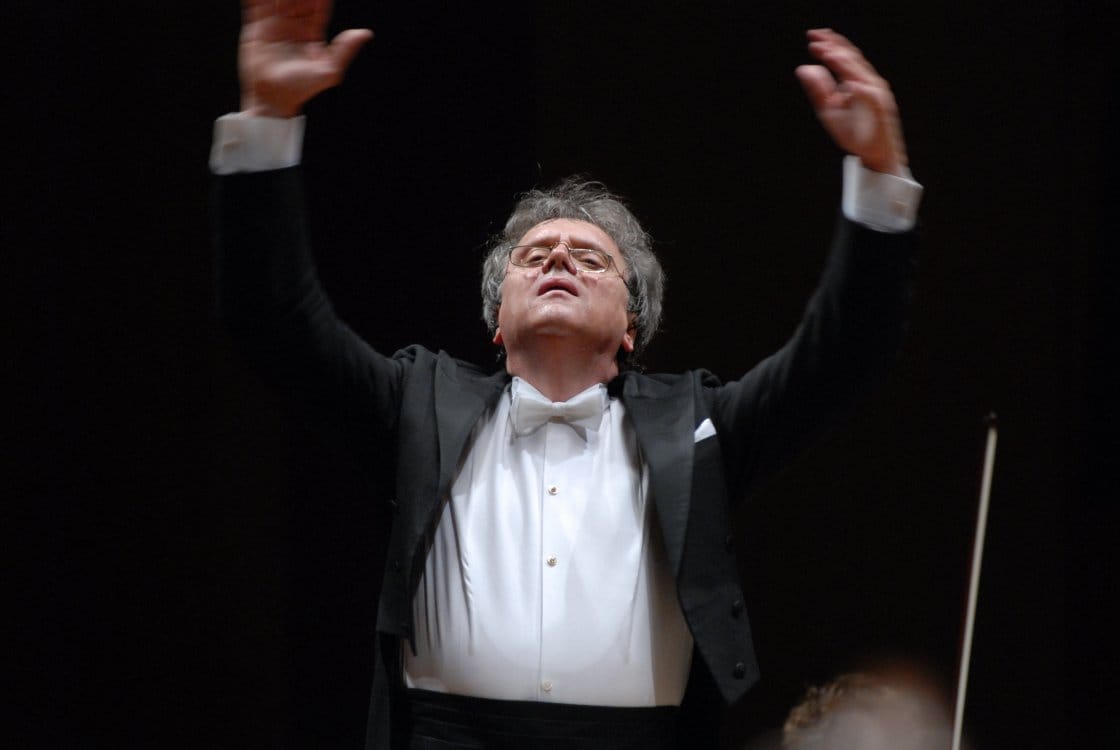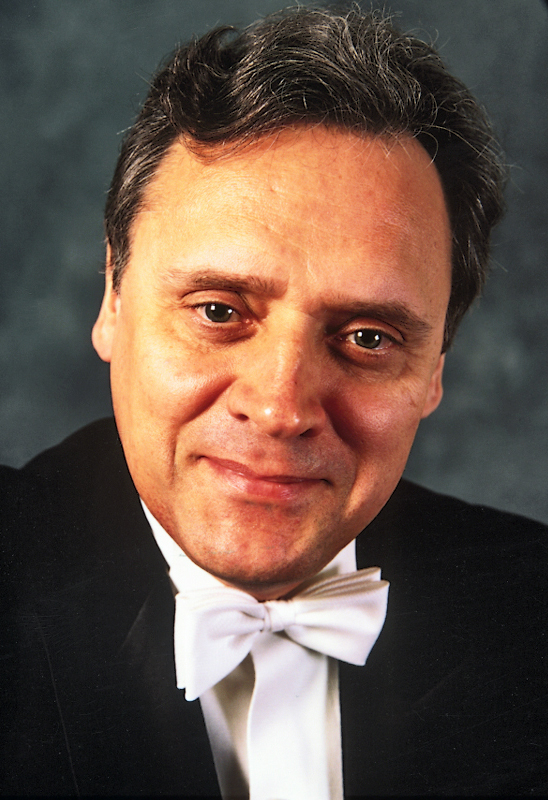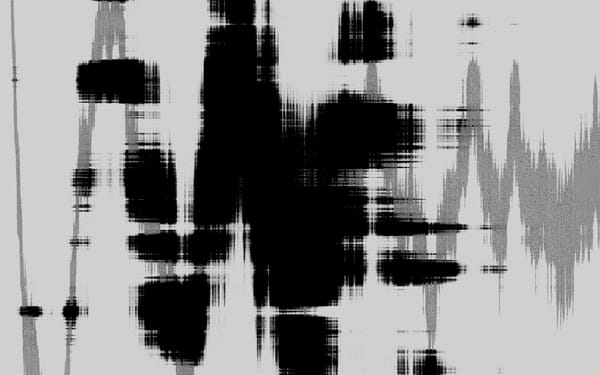The Man Behind The Legend

Alexander Lazarev is spoken of in the same breath as some of the world’s most prestigious orchestras, including the Bolshoi Symphony Orchestra. This month, the Russian conductor will lead the Symphony Orchestra of India in a two-evening programme at the NCPA. By Beverly Pereira
Alexander Lazarev, one of Russia’s foremost conductors, needs little introduction in the classical music community. But an insight into his career and formative years is imperative to understanding the profound grasp he has on both the historical Russian musical tradition and contemporary music by Russian and foreign composers. Lazarev’s repertoire, best described as innovative in its scope, ranges from the 18th century to the avant-garde.
Masterful in the music of composers from the Russian tradition, his performances are simultaneously insightful, enterprising and authentic. As a uniquely empathetic interpreter of Tchaikovsky, Stravinsky, Rimsky-Korsakov and Prokofiev, he firmly believes in equipping oneself with the holistic understanding of the creation of an idea behind each piece. And yet, every one of his brilliant performances leaves much to the interpretation of the listener. But, it’s his profundity of Shostakovich – having actually met the composer and witnessed several concerts during his youth – that’s beyond debate.
Learning from the best
Born in Moscow in 1945, Lazarev came from a family with no musical roots to speak of. Yet, he forged a deep connection with the world of classical music from a young age. He was only 14 when he started to attend operas and concerts on a regular basis. It was the year 1959, a golden period for Soviet classical music, when artistes like Sviatoslav Richter and David Oistrakh were at the height of their musical careers. Lazarev says he tried to absorb as much music as he could during this period, adding that he remembers the excitement of experiencing visiting orchestras led by foreign conductors, such as Zubin Mehta.
Lazarev received his musical education at two of Russia’s most prestigious institutions. He played the bayan, a Russian folk instrument, and the piano; he was also adept at playing classical pieces adapted for the bayan. While most young people at the time were dispensed towards study and travel, he was enrolled in the Soviet army at the age of 19. On turning 22, he was permitted to audition at the St. Petersburg Conservatory, where he studied music for a year. Soon after, he transferred to the Moscow State Tchaikovsky Conservatory, specifically to the class of Leo Ginzburg, the reputed Soviet conductor and pianist of Polish-Jewish origin.
Ginzburg, before he became a professor, studied and worked with Hermann Scherchen, who had an affinity for the contemporary and avant-garde, and other great conductors like Arturo Toscanini and Otto Klemperer. Naturally, Ginzburg’s teachings were more than just tinged with a distinctly European aesthetic, which was a novelty for the young Lazarev whose musical influences were otherwise restricted to the closed Soviet society he was brought up in. Lazarev graduated with first-class honours. Even today, he tremendously reveres the late Ginzburg for teaching him the finer nuances of conducting and, in many ways, cementing his decision to become a conductor.

Accolades and explorations
Successes and recognition followed Lazarev through the years as he navigated the world of historic and contemporary music in Moscow. He won first prize in the Soviet Union’s national competition for conductors in 1971, and in the following year, he was awarded the first prize and gold medal at the prestigious Karajan Competition in Berlin. Lazarev’s engagement with the Bolshoi Theatre began in 1978, when he founded the Ensemble of Soloists of the Bolshoi Theatre with the sole aim of disseminating contemporary music by both Soviet and foreign composers. Much like the Russian equivalent of the Frankfurt-based Ensemble Modern, this flexible group of players was sympathetic to modern music and eager to explore the repertoire.
Less than a decade later, he became the first person in over 30 years to hold both positions of chief conductor and artistic director of the Bolshoi Theatre. He remembers his stint at the storied theatre, from 1987 to 1995, as a period of being fantastically busy. And busy it was, for under his leadership, the Bolshoi Opera embarked on a series of foreign tours, starting with Tokyo in 1989 before moving on to notable stages such as Milan’s La Scala, New York’s Metropolitan Opera and the Edinburgh Festival. His recordings with the Bolshoi Symphony Orchestra for record companies such as Erato and Melodiya include Rachmaninoff’s Symphony No. 2 and Shostakovich’s Symphony No. 8, among other very commendable performances.
He also took it upon himself to refresh the repertoire of the historic theatre with a grand number of important works that had not been produced in a long time, including Mlada and Christmas Eve by Rimsky-Korsakov. It was during this glorious period in the history of the Bolshoi that Lazarev conducted Tchaikovsky’s The Maid of Orleans in a monumental debut at the theatre in 1990 in a production that marked the 150th anniversary of the Russian composer’s birth. These immensely successful productions, along with that of Glinka’s A Life for the Tsar, were also filmed for video at the time.
Bound for new shores
Lazarev was invited to lead another very prestigious orchestra, this time in the UK, in the final three years of his tenure at the Bolshoi Theatre. As the principal guest conductor of the BBC Symphony Orchestra from 1992 to 1995, Lazarev made noteworthy appearances at the Proms, undertook an extensive number of foreign tours and made recordings with the orchestra for Sony Classical.
Lazarev gradually furthered his reach as a guest conductor internationally, working with symphony orchestras and the occasional opera engagement. Between 1997 and 2005, the Royal Scottish National Opera, under the baton of principal conductor Lazarev, reached a new high. Besides recording for BIS and Linn Records, he also conducted the complete cycle of the Shostakovich symphonies. More recently, he led the Japan Philharmonic Orchestra as principal conductor from 2008 until 2016. Covering an important body of work spanning Rachmaninoff and Prokofiev to Shostakovich, Lazarev is well-represented on Octavia Records and continues as conductor emeritus on its distinguished roster.
Back home, he regularly guest conducts the St. Petersburg Philharmonic and the Philharmonia Orchestra and has performed with both orchestras in London, Paris and Vienna. This month, when the maestro conducts the Symphony Orchestra of India (SOI), one can expect performances marked by vivid interpretations of great scores. Arriving with an open mind on his first trip to India, Lazarev is looking forward to working closely with the SOI and engaging with the audience through music. “To be able to conduct Tchaikovsky on the shore of the Indian Ocean is like a fairytale for me,” he says, adding that he’s anticipating with pleasure everything that’s not to be expected.
Alexander Lazarev will conduct the SOI on 4th and 8th September at the Jamshed Bhabha Theatre.
This piece was originally published by the National Centre for the Performing Arts, Mumbai, in the September 2018 issue of ON Stage – their monthly arts magazine.






